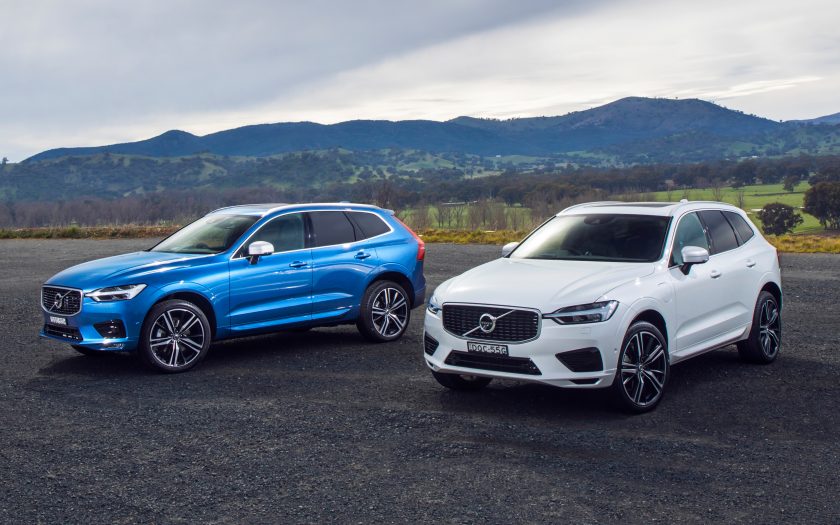WE GET MANY ENQUIRIES from our readers asking why cars have such irrelevant top speeds when those speeds cannot be used (or are illegal) on public roads.
We have just been advised by Volvo that the company has gone beyond regulation and legislation to introduce a limited top speed on all models of 180km/h. All Volvo cars ordered from now will be limited to a 180km/h top speed, and this applies to Australian-delivered vehicles.
Volvo Cars is meeting its promise made last year to introduce such a limitation and goes beyond regulation and legislation to help close the remaining gap to zero serious injuries and fatalities in traffic.
Perhaps of greater interest and value to most potential buyers, as well as the speed cap, every Volvo car will now also come with a Care Key, which allows Volvo drivers to set additional limitations on the car’s top speed, for example before lending their car to other family members or to younger and inexperienced drivers.
Together, the 180km/h speed limitation and Care Key send a strong signal about the dangers of speeding, underlining Volvo Cars’ position as a worldwide leader in safety. Both features illustrate how car makers can take active responsibility for striving to achieve zero traffic fatalities by supporting better driver behaviour. Some would suggest that it illustrates a degree of over-intervention or a nanny-state mentality but Volvo has never made any apologies for pushing the safety boundaries.

“We believe that a car maker has a responsibility to help improve traffic safety,” said Malin Ekholm, head of the Volvo Cars Safety Centre. “Our speed limiting technology, and the dialogue that it initiated, fits that thinking. The speed cap and Care Key help people reflect and realise that speeding is dangerous, while also providing extra peace of mind and supporting better driver behaviour.”
The speed limiter has proven to be controversial since it was announced, with some observers questioning the rights of car makers to impose such limitations through available technology.
Volvo Cars believes it has an obligation to continue its tradition of being a pioneer in the discussion around the rights and obligations of car makers to take action that can ultimately save lives, even if this means losing potential customers.
The problem with speeding is that above certain speeds, in-car safety technology and smart infrastructure design are simply incapable of avoiding severe injuries and fatalities in the event of an accident.
This is why speed limits are in place in most western countries, yet speeding remains ubiquitous and one of the most common reasons for fatalities in traffic. Millions of people still get speeding tickets every year.
Research shows that on average, people have poor understanding of the dangers around speeding. As a result, many people often drive too fast and have poor speed adaption in relation to the traffic situation.
Apart from speeding, intoxication and distraction are two other primary areas of concern for traffic safety and that constitute the remaining gap towards Volvo Cars’ vision of a future with zero traffic fatalities and serious injuries. It is taking action to address all three elements of human behaviour in its safety work, with more features to be introduced in future cars.
Is the reasoning sound?
Now, we can refute some of Volvo’s logic. Speed limits rarely suit the conditions; sometimes they are ludicrously below what would be considered a safe speed (which goes some way to explaining why so many drivers are caught speeding); at other times, they can be too high, especially when rain, snow, fog and other climatic and road conditions are taken into account. Yes, millions of people get speeding tickets every year, even when their speed did not endanger themselves or others. The problem is, a limited top speed of 180km/h won’t make one iota of difference to the number of people exceeding the posted speed limit. There are very few places in the world where 180km/h is a permitted speed. So even with a limited top speed, Volvo drivers will still be able to exceed the speed limit by a significant amount, and to drive too fast for the prevailing conditions. And even though speed is often a factor in road incidents, a 180km/h limiter will still permit many inexperienced or foolhardy drivers to get into trouble.
However, we do like the technology that allows owners to set their own top speed limit. It has often been argued that the lives of younger members of the family, who are often relegated to the oldest (and therefore the least safe) car in the family fleet would be much less likely to be involved in a crash, and likely to sustain less serious injuries if they are in a crash, if they were driving the newest (and therefore, safest) car. Being able to limit their top speed and reducing the risk factor may make it more acceptable for parents to trust them with the newer, safer car. Technology available on some other makes even makes it possible to limit the sound system volume and impose other limitations on car use (such as where and when it may be driven). Another significant safety factor is a breathalyser lock that won’t allow the car to be started or driven until the driver has passed a blood alcohol breath test. We aren’t sure if technology exists to extend this to a drug test but if it doesn’t, it can’t be too far away.
None of this technology is failsafe and too often can be circumvented. But it is a step in the right direction. We’re just not sure if it is the car companies who should be initiating it.
What do you think? Are these limitations a step too far? Should car companies be able to use technology to curtail bad driving habits? Will such restrictions make an appreciable difference to the road toll? We’d love to hear your feedback.
